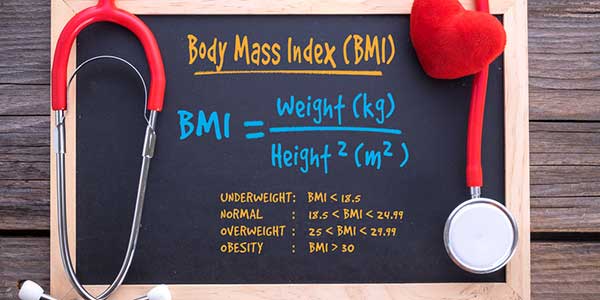
Health is guided in numerous ways, frequently on subjective and objective scales. Some individuals like to base wellbeing on personal judgments while others attribute health to concrete numbers. But body mass index, also known as BMI, is loosely thrown out to assist in health verification. So what does BMI measure and why might it NOT be the best measurement for health?
What Does BMI Measure?
Also known as the Quetelet index or body mass index, BMI is a measure of body fat based on both height and weight (mass). The measurement is applicable to both adult men and women (aged 20 years and older) along with children and teens (aged 2 through 19), though they have their own appropriate measurements. Children and teen BMIs are mostly used to determine growth and development patterns, in the form of percentiles, and varies between genders. Calculating BMI is based on either a metric or English formula.
BMI Classification Chart
After calculating body mass index, the number is categorized to objectively identify underweight, normal, overweight, and obese classifications.
How to Measure BMI Accurately
The accuracy of measuring BMI is mostly dependent of weight. Obtaining an accurate weight may be a daunting task, especially considering natural weight fluctuations throughout the day. The number on the scale can best reflect body weight in the mornings, after using the bathroom, and without heavy clothing including shoes. Find more about accurate weighing and how often you should weigh yourself here.
Why BMI is NOT the Best Measurement for Health
But even with weight accuracy, body mass index may not be the most precise measure of body fat, especially compared to these top five ways to measure body fat percentage. Body mass index is mostly discriminated based on its generality. Though BMI can be a good indicator of health, it does not tell the complete story… BMI is not the best measurement for health based on:
• Inconsideration for gender, age, and ethnic disparities
• Generalization of body weight without reflecting bone density and fat and muscle mass
• Ignoring waist circumference and size, a significant determinant in metabolic syndrome - group of risk factors that raises the risk of heart disease
Ultimately, body mass index is hinted to be both broad and suggestive. Health experts suggest that health can be achieved at every size, implying that "overweight" and "obese" individuals may still have a lessened risk of developing chronic disease than assumed. Aligning with the contradiction, studies have shown (based on BMI) overweight and obese may also have a low risk of developing heart disease, common to "normal" BMIs. This is particularly true if healthful practices are set into place - a nutritious diet, an active lifestyle, obtaining adequate sleep, etc. But nonetheless, especially when utilizing other health tools, overweight and obese individuals are at an increased risk of developing diabetes and heart disease, commonly related to high cholesterol, triglycerides, and cholesterol.
All-in-all, body mass index should be taken with a grain of salt. Continuing and relying on BMI's use dismisses more accurate measures of health. But ending on a more positive note, BMI is a convenient and free. BMI can act as a guide in determining health, though it should not replace regular physical exams and visits with healthcare professionals.





